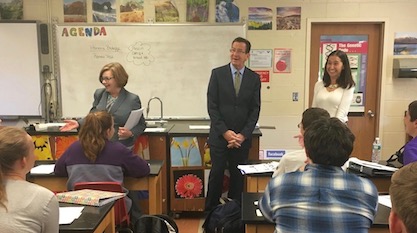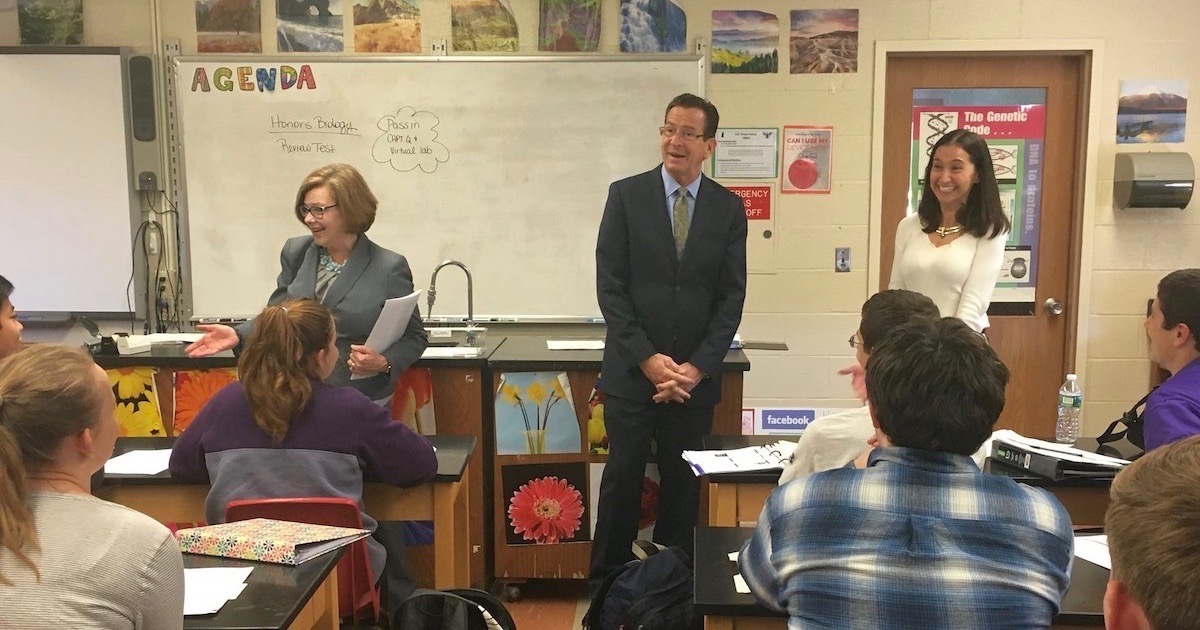 Education
Education
When Biologists Speak to Biology Teachers


In her article yesterday for The Atlantic, which I wrote about here, Olga Khazan quotes Penn State political scientist Eric Plutzer on the lamentable stubbornness of many biology teachers in not evangelizing their students in favor of Darwinian evolution in its fullness:
Some educators in this ambivalent 60 percent tend to teach evolution only as it applies to molecular biology, Plutzer said, but not the macroevolution of species…. Others distance themselves from the material even as they tell students it will be on a standardized test. “Their primary concern is not offending the students or their parents by characterizing the science in a way that seems to be challenging religious faith,” Plutzer told me. “I think that in some cases, the teachers themselves have doubts.” [Emphasis added.]
“The teachers themselves have doubts…” Meaning, doubts about Darwinism. That’s what you think? Well, I know that many do, because they get in touch with us about it, and have been doing so for years. (See the Helpline page on the Free Science website.) The concern about evangelizing teachers so that they’ll be better equipped to evangelize students has been a priority for some Darwinists, also for years. Political philosopher J. Budziszewski at the University of Texas has a brilliant post about this.
Dobzhansky versus Crick
He points out a contradiction between well known sayings of two well known biologists.
Geneticist Theodosius Dobzhansky famously wrote, “Nothing in biology makes sense except in the light of evolution.” Did you get that? Nothing.
Yet after urging that “Biologists must constantly keep in mind that what they see was not designed, but rather evolved,” molecular biologist and Nobel Prize winner Francis Crick remarked, “It might be thought, therefore, that evolutionary arguments would play a large role in guiding biological research, but that is far from the case. It is difficult enough to study what is happening now.”
Can both be true? Clearly not. Evolution can’t be critical to all biological research, while at the same time not actually “play[ing] a large role” in it. So what explains the contradiction between Dobzhansky and Crick, who presumably would both know what they were talking about? Budziszewski answers: They were talking to different audiences! Dobzhansky was talking specifically to teachers:
I wonder whether part of the explanation might lie in the fact that Dobzhansky was writing not in a journal for biologists, but in a journal for K through 12 biology instructors, American Biology Teacher.
What difference would that make? Wouldn’t the same views and arguments be expressed to teachers as to practitioners? Not if one of the objects of preparing teachers is to propagandize them.
He cites a couple of Darwinist academics who are explicit about the permissibility of using propagandizing “deception” to get the message across to what they consider to be less intelligent audiences. That would presumably include run-of-the-mill biology teachers, and students too.
Misdirection, at Best
In that light, let’s turn back to Olga Khazan’s article. She continues:
Additionally, some teachers expose students to different “theories” about evolution and encourage them to make up their own minds. “But does a 15-year-old student really have enough information to reject thousands of peer reviewed scientific papers?” Berkman and Plutzer write in their article.
But that right there, from Plutzer and his colleague Michael Berkman, is itself a piece of misdirection, at best. The purpose of “teach the controversy”-style pedagogy isn’t to encourage students to think they “have enough information” to reject what most biologists say in “thousands of peer reviewed scientific papers” they haven’t read. The goals are to engage and excite students intellectually, introduce them to scientific argumentation, and to acquaint them with the reality, which is that a genuine, interesting, and important scientific controversy is going about neo-Darwinian theory among scientists themselves.
Why should that last fact be hidden from young people? Or from teachers? Budziszewski concludes, ironically, “I do think that if everyone laid his best arguments on the table, the results would be different than what most of the smart people expect.” But different results are just what the “smart people” want to avoid, which is why full candor, when speaking to teachers or students, is to be avoided.
Photo: A high school biology classroom, by Dannel Malloy, via Flickr (cropped).
